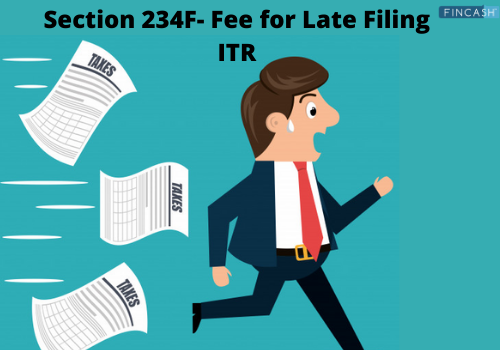
Table of Contents
Underpayment Penalty
The underpayment penalty meaning defines a fine or a tax penalty that might be enacted or charged on an individual for not paying the total estimated tax, or is doing so inadequately. Form 2210 records the tax payments made, whereas Form 1040 or 1040A determines the underpayment penalty amount that the taxpayer is subject to.
The IRS (Internal Revenue Service) imposes several penalties on taxpayers for not paying their Taxes adequately. Such penalties are imposed to encourage the taxpayers to abide by the IRS rules.
The IRS will generally calculate the penalty for you. However, in certain situations, you might need to do it yourself on Form 2210 by subtracting the tax amount already paid throughout the year.

When is Underpayment Penalty Applicable?
The underpayment penalty meaning might be applied in case the total of your estimated withholdings or payments (or both) is not less than -
- The total tax amount you paid during that particular period is lower than
90%of the tax amount you owed for the current tax year. - The total amount of tax you paid during the current year is not equal to at least
100%of the taxes you paid last year.
Let’s take an example to understand the underpayment penalty better-
Say for the current tax year, your federal income tax Obligation is Rs. 10,000. But you paid only
80%of your total tax obligation, that’s Rs. 8,000. Then you are subject to an underpayment penalty.
Can Underpayment Penalty be Waived?
On the following occasions, the IRS might waive the underpayment penalty.
- The IRS says, you can avoid underpayment penalty only if the total amount you owe is less than Rs. 1,000, which is calculated after subtracting any refundable credits and withholdings.
- The taxpayer paid a minimum of
90%of the total tax amount owed. - The taxpayer did not have any unpaid taxes for the previous tax year.
- The taxpayer retired after reaching the age of
62 years. - The taxpayer missed paying the amount owed due to a casualty event, disaster, or other unforeseen situations.
- The taxpayer became physically challenged during the tax period or during the previous tax year for which he/she had unfulfilled tax payments.
- Any other circumstances in which the taxpayer was unable to pay the taxes due to some reasonable cause. However, it should not be due to intentional neglect.
If you do not qualify under the above exceptions, you would be subject to an underpayment penalty if you Fail to pay your estimated taxes adequately.
Talk to our investment specialist
How to Avoid Underpayment Penalty in the Future?
You can follow a few steps to avoid underpayment penalties in the future. These include -
Makes estimated payments: If you have a side job or are self-employed, you may be required to calculate the total estimated tax payments throughout that tax year.
Adjust your W-4 withholding: In case, your employees are not paying their taxes enough, you might make up for the tax shortfall by updating your Form W-4 and asking your employees to withhold more.
Annualize your income: This option is best if your Income is seasonal or altogether unpredictable. By annualizing your income, you can base your tax payments on some reasonable income estimates.
All efforts have been made to ensure the information provided here is accurate. However, no guarantees are made regarding correctness of data. Please verify with scheme information document before making any investment.








